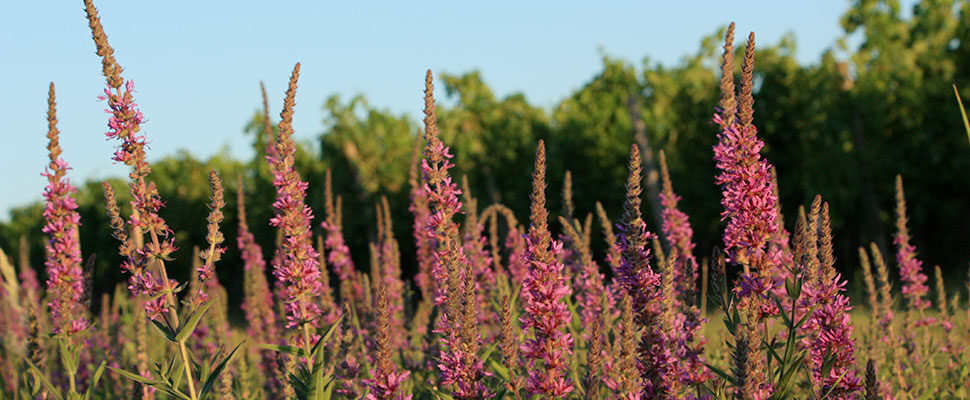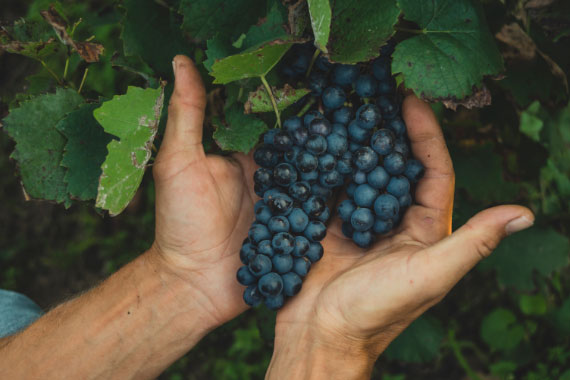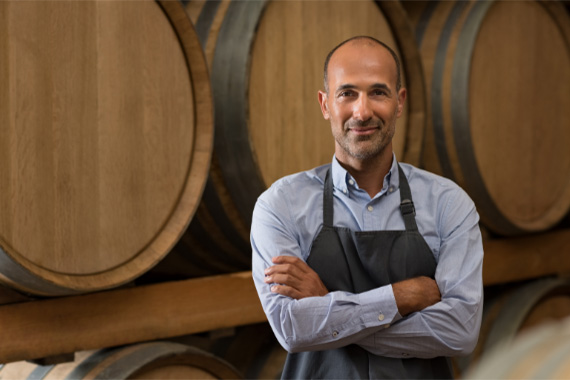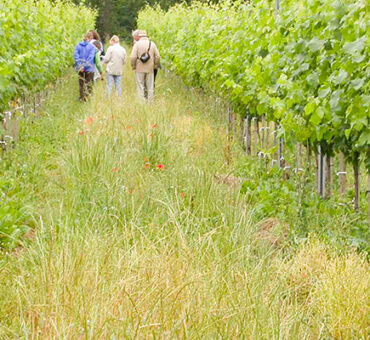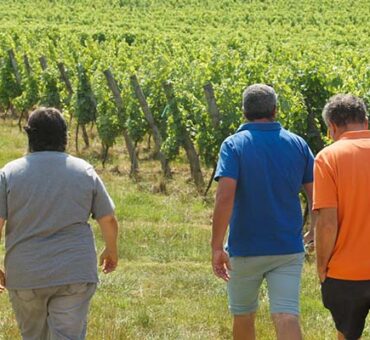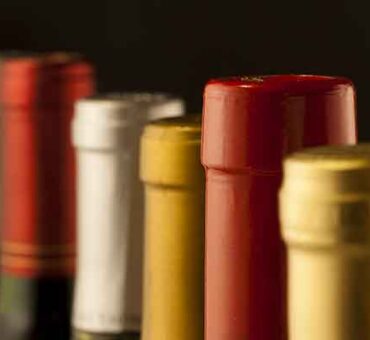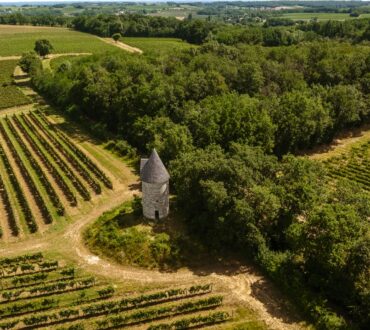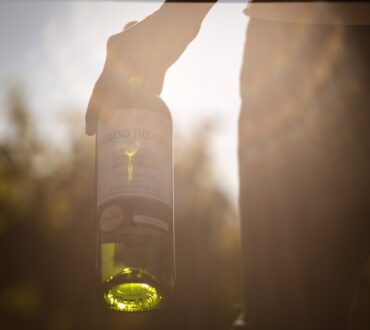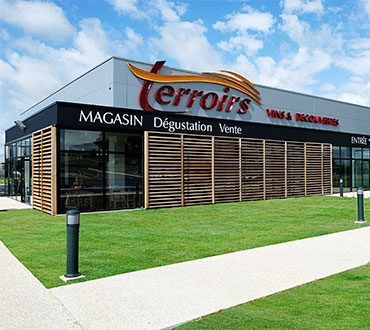In this article on HVE certification in viticulture, Univitis answers all your questions on this subject with the help of our technical viticultural advisor Mr. Enrick GEORGES and the interviews of two HVE3 certified winegrowers.

What is the HVE approach in viticulture, its origin and purpose ?
Mr. Enrick GEORGES: ” This certification is first of all the result of a reflection of the public system of valuation and environmental recognition in 2007 during the Grenelle de l’environnement. The objective was then to set up an environmental certification valid for agricultural exploitations. A system was created with three gradual levels to allow businesses to move forward, step by step:
Level 1: Compliance with the essential practices of the environmental regulations.
Level 2: Adoption of low environmental impact techniques.
Level 3: Measuring environmental performance thresholds in terms of biodiversity and low dependence on inputs.
Following this reflection and the work of the relevant bodies, the High Environmental Value (HVE) certification was born and launched in 2011.”
How does this HVE certification come to life in viticulture?
Mr. Enrick GEORGES: “This certification was created in 2011 but I remember that the enthusiasm for this certification took place more around 2017-2018. To meet the new societal requirements in terms of environment, the wine production sectors have become interested in HVE certification. In any case, winegrowing has been a driving force on the promotion of this certification and this is what is reflected when you look at the figures for July 2021 in France: winegrowing is currently the most represented sector by this certification with more than 14,000 farms (14,721 precisely) out of a total of 20,161 farms. ”

What commitments does this certification imply? What is its impact on wines and sales?
Mr. Enrick GEORGES : “The commitment in the HVE certification integrates the notion of development and maintenance of biodiversity in the management of the exploitation and aims to limit the inputs (phyto, fertilizers). It is therefore a question of integrating the exploitation in an approach that respects the environment.
Today’s customers are becoming more and more demanding in their consumption and particularly in terms of respect of nature. The customer demand for HVE certified wines is more and more important and the certification therefore plays an essential role in the sale of our wines!”
What are the steps to get it?
Mr. Enrick GEORGES: “The steps are quite simple: first of all, you have to do a level 1 self-assessment ( PAC conditions) or a level 2. The Terra Vitis certification allows, for example, to reach this level 2 of the HVE certification.
Then, if these self-checks seem satisfactory and do not show any unmanageable non-conformity, a level 3 self-check is required.
The self-checking is done in the form of a grid that allows to fill in the specific criteria of the exploitation and to verify if it can meet the HVE requirements. A minimum of 10 points is required in each of the indicators (biodiversity, phytosanitary strategy, fertilization management and water resource management). “
To your knowledge, what are the next possible evolutions of the HVE certification? Or what evolutions could be imagined?
Mr. Enrick GEORGES : “Evolutions are to be expected on the HVE certification. We must also remember that the certification is divided into two tracks: track A which includes the scoring criteria (indicated above) and track B which is evaluated on the revenue and the presence of PSI. It is possible that the second track will disappear.
In addition, the practices of winegrowers have evolved: total weeding of the plots has become marginal, alternatives have also evolved and are increasingly used (grassing for example).

FOCUS interviews with two UNIVITIS winemakers
We were also interested in the repercussions on the main stakeholders for this certification: the winegrowers.
We therefore went to meet two Univitis winegrowers:

Isabelle PILLON, 49 years old, has been established for 19 years following the purchase of Mr. Pauvert’s property in the commune of Lougeux. Today, Isabelle Pillon works with her husband on 25 hectares of vines.

Cécile BARTHELOMEY, 40 years old, also a winegrower for 19 years, owns Château Les Feneteaux and 27 hectares of plots.
Since which year have you been HVE certified and what changes has this brought to your way of working ?
Isabelle PILLON: “We committed to HVE3 certification in 2018. It changed absolutely nothing in our way of working because the exploitation, the equipment, the products used, our way of working, all these elements were eligible for the requirements of the certification.”
Cécile BARTHELOMEY: “I became HVE certified in February 2018. It didn’t really change my way of working because I already had the good practices needed to be HVE3 certified. It was in the organization and note-taking that it had an impact. I had to be sharper.”
Why did you choose to commit yourself in this certification and what was the cost?
Isabelle PILLON : “We committed ourselves following the request of the UNIVITIS cooperative and on the advice of the sales department.
As far as the cost is concerned, it didn’t cost us anything because the Univitis cooperative – of which we are members – covers the cost of the certification every three years as well as the cost of the intermediate inspection (every year and a half).
Cécile BARTHELOMEY: “We have committed ourselves to this certification under the advice of Univitis. This certification is essential for the marketing of the wine and it enhances the value of our work in the cultivation of the vine, which is a real plus. For the costs, Univitis took care of everything.”
How did Univitis support you in this process?
Isabelle PILLON: “The Univitis technical advisors help us in this process, particularly in preparing the documents we need to present and in calculating the IFT. What I appreciate most is that a technician from the wine cooperative is present at each audit.
Even if it’s time-consuming, I don’t regret committing to HVE3 certification, it’s the one that best suits my exploitation!”
Cécile BARTHELOMEY: “Throughout the process and still now, Univitis is present. For example, during the audit, a Univitis technician was present. This was very reassuring. He explained to us all the mandatory documents to submit and all the obligations to follow.”
Today, Univitis supports its members in this HVE certification process, which has a bright future ahead of it !

